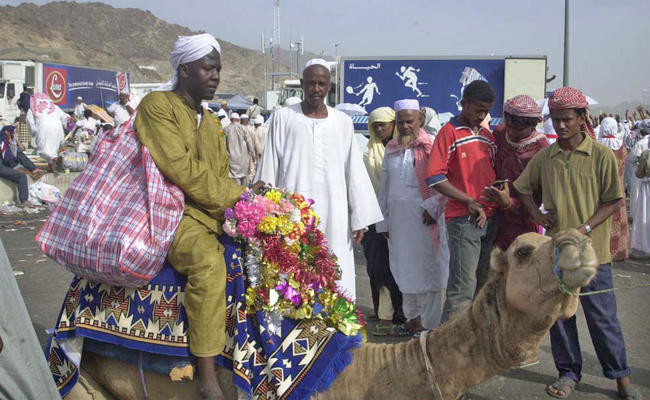JEDDAH: An estimated 10 percent of the Saudi population is of African descent, living mainly in the Western Region, and particularly in Makkah. Their roots lie in the annual Hajj pilgrimage and the British colonization of Africa in the 19th century.
For hundreds of years, pilgrims and oppressed Muslims from that continent traveled to Makkah and Madinah, and chose to make those cities their home. They came mainly from Chad, Burkina Faso, Gambia, Mali, Senegal and especially Nigeria.
“My family arrived in Hijaz in 1903, from Nigeria. The main reason for their emigration was British colonization,” Dr. Mohammed Faheem, 70, professor of comparative education at Umm Al-Qura University in Makkah, told Arab News.
The British colonized Africa to exploit its natural resources, bringing with them Western education, the English language and Christianity. There was resistance, particularly among Muslims in the north, but with no organized army or modern weapons they were no match for the might of the British Empire.
Many chose to journey east, where they knew they could feel safe in lands that would be forever Muslim. “They passed through Chad and Sudan, and then the final destination was the Hijazi lands of the Arabian peninsula,” Dr. Faheem said.
“Some of the immigrants already had knowledge of the Arabic languages, and Islamic studies, and they worked as judges, scholars and teachers in the holy mosque. My grandfather was one of those. Others were laborers.
“Western education, or modern education, arrived in Nigeria with British colonization. For that reason, Nigerians believed that modern education should be forbidden from a religious perspective. That idea remained with many of them, even when they came to Hijaz. Very few people would accept sending their children to modern schools, even in Saudi Arabia. They would only send their children to traditional Islamic schools.”
There is a legacy of that mistrust in Nigeria to this day. The literal meaning of Boko Haram, the Nigerian extremist militia, is “Western education is forbidden.”
The best known Saudi families of African descent are Fallatah, Hausawi and Barnawi. They all used to live in one area near to each other in Makkah.
“Each tribe has its own language named after them,” Dr. Faheem said. “There are the Hausa, Fallata, and Borno languages, and they were spoken in that area of Makkah.
“I myself speak the Fallatah language, and when I traveled to the US to study, I was keen to improve my African language and I chose it as the second mandatory language to maintain my higher education.
“When I was younger, we used to speak our own language at home and switch to Arabic when we went outside, but younger generations no longer have that bond with their origins.
“They did not have the life we had, we lived closer to our roots because we lived among those who moved from West Africa to live here.”
Not all black Saudis, however, trace their origins to West Africa. While there has been no official survey of the country’s ethnic diversity, many Saudis are Afro-Arabs who came from places such as Sudan and Djibouti.
But whatever your origins, Dr. Faheem said, respect for your roots does not conflict with your loyalty to your country and your people.
Saudi Arabia's African roots traced to annual Hajj pilgrimage and British colonization

-
{{#bullets}}
- {{value}} {{/bullets}}
